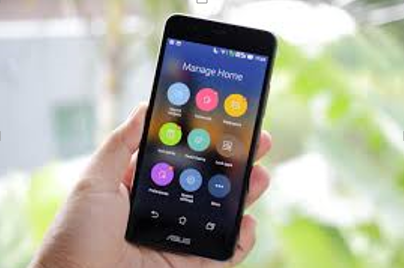Exploring the Rise of Custom Android Devices

Introduction
In today’s tech-savvy world, smartphones are more than just communication tools; they are personalized digital companions. This increasing need for customization has fueled the demand for custom android devices, especially among businesses, developers, and tech enthusiasts who require functionality beyond what standard consumer models offer. From tailored hardware to unique firmware setups, these devices open new possibilities across various industries.
What Are Custom Android Devices?
Custom android devices refer to smartphones, tablets, or handhelds built with specific hardware or software configurations that cater to niche requirements. Unlike mass-produced Android phones that come with fixed specifications, custom units are designed with the end user’s needs in mind. This could mean integrating specific sensors, optimizing for rugged conditions, or installing stripped-down firmware for enterprise use.
Who Needs Custom Android Devices?
Several industries and professionals benefit from these specialized devices:
Healthcare
Hospitals and clinics often require secure, durable, and sanitized Android devices that can run health monitoring applications. Devices tailored with antimicrobial coatings or data encryption features are vital for patient data security and compliance.
Logistics and Transportation
Companies in logistics need rugged, GPS-enhanced smartphones that withstand drops and provide real-time tracking. Custom units can include barcode scanners, RFID readers, and extended battery life for long shifts on the road.
Field Services
Field technicians need custom android devices with sunlight-readable displays, water resistance, and wireless connectivity options for quick data transmission and diagnostics.
Retail and Hospitality
Tablets customized for point-of-sale systems, inventory management, or room service applications are gaining popularity. Businesses can pre-install proprietary apps and restrict access to ensure security and user focus.
Key Features in Custom Android Devices
Rugged Design
One of the main highlights of these devices is their ability to operate in extreme environments. Manufacturers can use reinforced materials, IP67/IP68 certifications, and military-grade durability to ensure the device performs reliably under stress.
Tailored Operating System
With custom firmware, the Android operating system can be modified to remove unnecessary apps, enable kiosk modes, or prioritize performance for specific applications. This ensures a streamlined user experience.
Hardware Modifications
Users can choose from a wide array of hardware tweaks such as:
- High-capacity batteries
- Integrated biometric sensors
- Custom display sizes
- Extra security chips
- Special connectors or I/O ports
Enhanced Security
Businesses handling sensitive data often require enhanced security protocols. custom android devices can come equipped with fingerprint scanners, facial recognition, and encrypted storage options, ensuring the data remains protected.
See also: Ignite Your Confidence and Chase Success with These Transformative Steps
Advantages of Choosing Custom Android Devices
Business Efficiency
By using devices that align with their specific workflows, companies can eliminate inefficiencies caused by incompatible hardware or software limitations.
Brand Identity
For companies, especially those in retail or customer service, using branded devices enhances the overall experience and strengthens brand identity.
Cost Management
Although upfront costs may be higher, the long-term savings achieved through productivity improvements, reduced software conflicts, and hardware longevity can outweigh initial investments.
Scalability
Manufacturers offer scalable solutions, allowing companies to start small and increase their order volume as needed. This flexibility makes custom android devices suitable for startups and large enterprises alike.
Common Use Cases in Real Life
Education
Schools and educational institutions are deploying tablets customized with educational apps and parental control features. These devices allow remote learning in a controlled environment, especially beneficial in under-resourced areas.
Smart Home Systems
Some manufacturers develop Android-based control panels for smart homes, tailored to interact with specific appliances or home automation systems.
Emergency Services
First responders rely on custom devices for communication, navigation, and coordination. These devices often feature push-to-talk capabilities, loudspeakers, and emergency SOS buttons.
How to Choose a Reliable Manufacturer
Choosing the right partner for building custom android devices is critical. Here are a few guidelines:
Experience
Opt for companies that have a proven track record in building similar solutions. Look for case studies, client testimonials, and successful deployments in your industry.
Design Capabilities
Check if the manufacturer offers end-to-end services—from concept and prototyping to mass production and after-sales support.
Compliance
Ensure the devices meet relevant industry certifications and standards, especially for sensitive sectors like healthcare or finance.
Support and Warranty
Technical support, timely updates, and a solid warranty policy are essential for maintaining performance and reliability post-deployment.
Challenges to Consider
While custom android devices offer numerous advantages, they do come with a few challenges:
- Initial Cost: Customization can increase the price compared to off-the-shelf solutions.
- Longer Lead Time: Design and development take more time, especially during the prototyping phase.
- Firmware Updates: Keeping firmware up-to-date while maintaining customization is complex and requires ongoing support.
- Compatibility Issues: Apps or accessories not designed for the custom build might require further adjustments.
Future Trends in Custom Android Devices
With advancements in AI and IoT, the future of custom android devices looks promising:
- AI-Powered Functionality: Integrating machine learning to improve user interaction and data analysis.
- 5G and Beyond: Enhanced connectivity will enable more robust real-time applications.
- Eco-Friendly Materials: Manufacturers are adopting sustainable materials to reduce environmental impact.
- Modular Design: Devices with interchangeable parts for easy upgrades or repairs will become increasingly common.
Conclusion
The demand for custom android devices is a testament to how technology is moving towards greater personalization and industry-specific solutions. Whether you’re in logistics, healthcare, or education, these devices provide the flexibility, performance, and reliability needed in a competitive environment. By partnering with a skilled developer or manufacturer, organizations can unlock a world of functionality that standard devices simply can’t match. As technology continues to evolve, custom android solutions will play a pivotal role in driving digital transformation across every sector.




